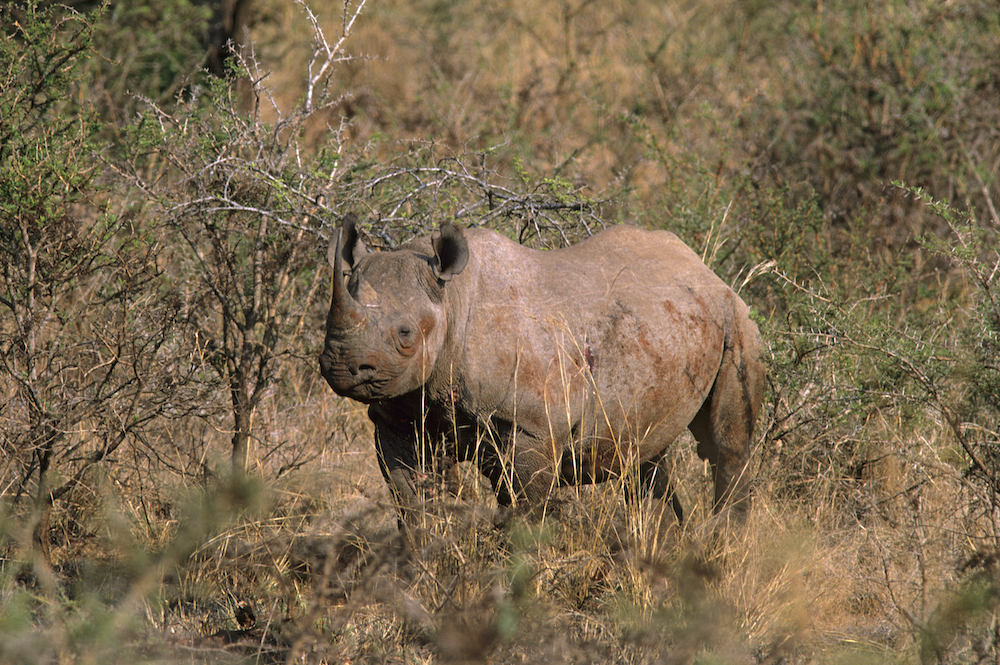South Africa’s Minister of Forestry, Fisheries and the Environment, Dr Dion George, has released the country’s latest rhino poaching figures. In the first three months of 2025, 103 rhinos were killed; a stark reminder that the ongoing pressure from organised crime networks remains high.
While these latest numbers are similar to 2024’s statistics (when 420 rhinos were lost across the year, equivalent to 35 rhinos per month versus 34 per month so far in 2025), the new data highlights a key shift in location.
One of the most notable developments is the drop in poaching in KwaZulu-Natal (KZN), a Province that has been heavily targeted in recent years. In 2024, there were 232 rhinos illegally killed in KZN – the equivalent of approximately 58 every three months. Yet, between January and March 2025, just 16 poaching cases were reported. Meanwhile, poaching cases in South African National Parks show a sharp rise. Sixty-five rhinos were killed in the first quarter of 2025, compared to 88 throughout 2024.
These shifting patterns serve as a reminder that organised criminal syndicates adapt their targets in response to a number of factors, including changing law enforcement efforts. Rhino poaching is not an isolated or opportunistic crime. It’s a form of organised criminal activity that links to other high-level illicit actions, including weapon and drug trafficking, money laundering and corruption. The networks operate across borders, exploiting international loopholes and shifting location based on perceived vulnerabilities.
As our CEO, Dr Jo Shaw, notes,
“When one area becomes harder to target, organised crime syndicates quickly move elsewhere, damaging not only wildlife conservation efforts but exploiting and harming communities, too. Without the dedicated efforts of rangers and local law enforcement on the ground the situation could be so much worse – however real change will be dependent upon a transformative approach with international investigations focused on disrupting trafficking routes and arresting higher-level players in the networks.”
South African authorities made 15 arrests and secured five successful prosecutions in the first three months of 2025. Last week, one man from Mozambique was sentenced to 20 years in prison for rhino poaching and related offences. Mozambique remains a key transit and recruitment hub for poaching syndicates, and ongoing instability and limited resources and enforcement capacity in some areas continue to pose major challenges for cross-border cooperation.
The latest figures from South Africa are a clear reminder that, despite continued efforts in rhino reserves, poaching networks remain a serious threat to rhinos and vulnerable communities. Shifting the dial on rhino losses will take sustained, coordinated and collaborative action, augmenting the benefits of ranger patrols, community partnerships and range expansion to grow rhino numbers with transnational investigations to disrupt the global criminal networks behind the illicit trade.








